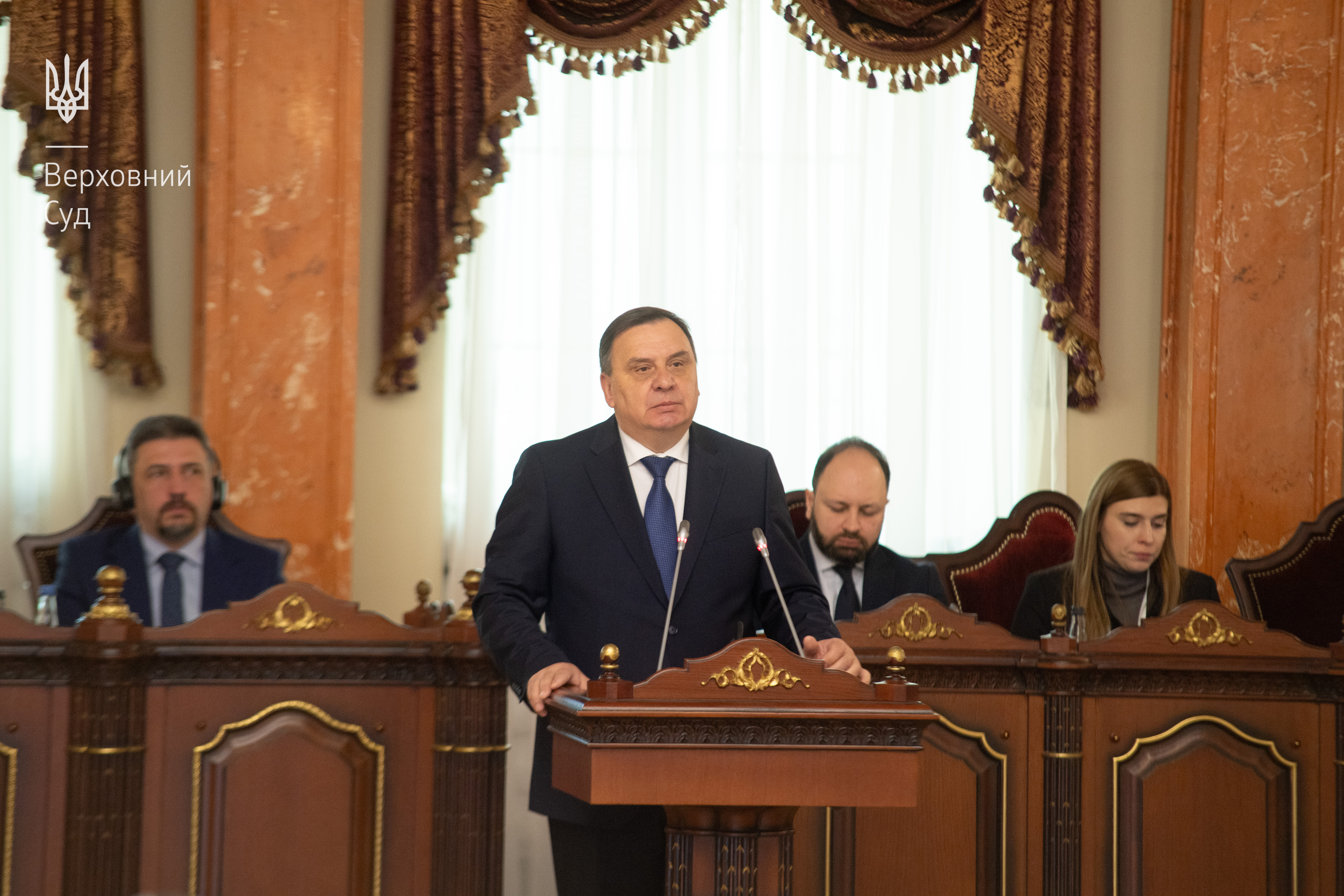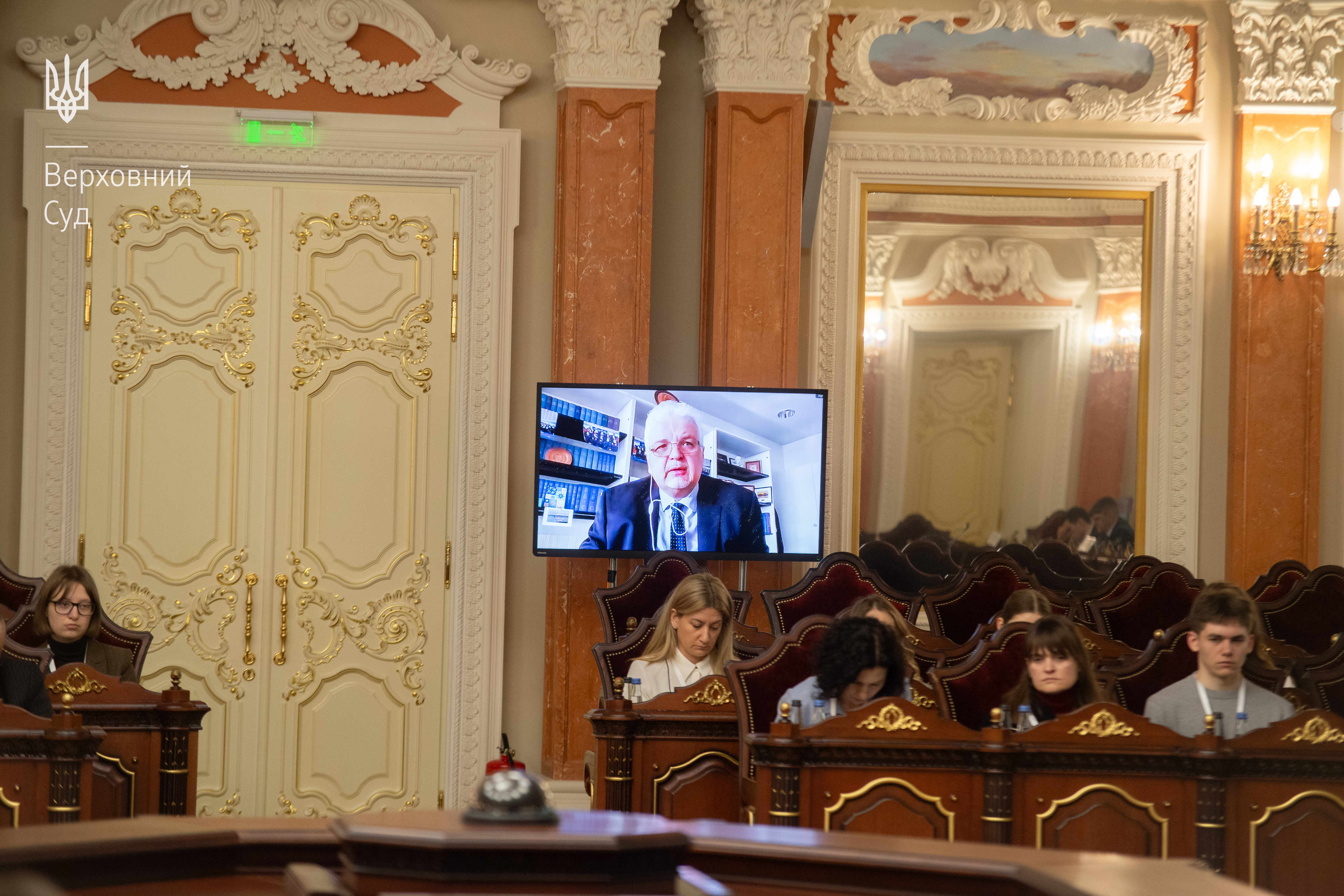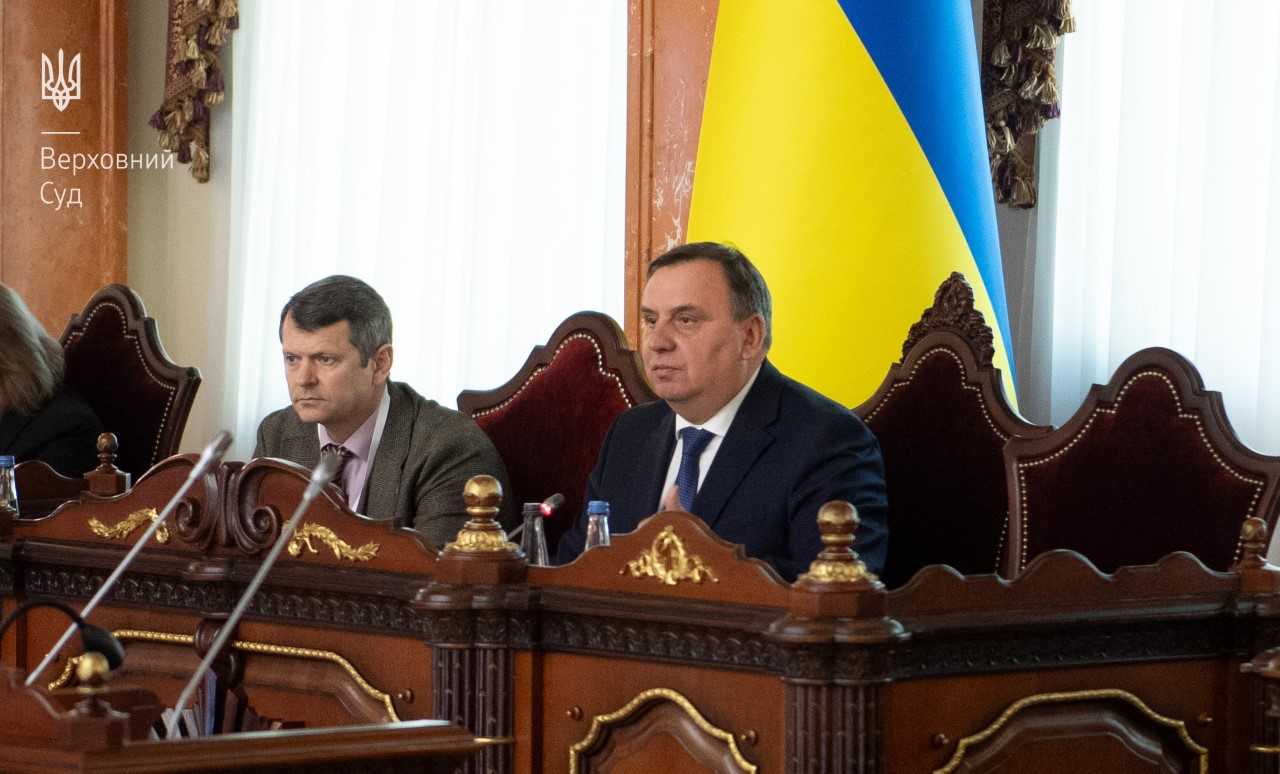Contact center of the Ukrainian Judiciary 044 207-35-46

A significant part of the judgments of the European Court of Human Rights issued in cases against Ukraine state violations caused by the problem of applying preventive measures. The key problem that exists today is the unreasonableness and insufficient motivation of court decisions to extend the preventive measure in the form of detention.
Therefore, within the national legal system, it is necessary to analyse this situation and act jointly and in a unified context to achieve positive results. It should be understood that the restriction of the right to liberty as a fundamental human right enshrined in the Convention for the Protection of Human Rights and Fundamental Freedoms can only take place in exceptional cases and be applied in strict compliance with the law.
This was emphasized by President of the Supreme Court Stanislav Kravchenko during a roundtable discussion on ways to implement the ECHR judgments in the group of cases Ignatov v. Ukraine and compliance with Article 5 of the Convention, organised by the Supreme Court jointly with the Ministry of Justice of Ukraine, the OSCE Support Programme for Ukraine within the project ‘Assisting the Supreme Court and higher courts in implementing judicial reform and ensuring access to justice in times of war’, the Council of Europe's Directorate of Cooperation Programmes within the project ‘Fostering human rights in the criminal justice system in Ukraine - Phase II’.

According to Stanislav Kravchenko, when the CPC of Ukraine was introduced in 2012, custody accounted for just over a third of all applications for preventive measures. Today, the share of this preventive measure exceeds two-thirds of the total. In the end, despite the fact that the current situation with the application of preventive measures may not be considered perfect, it is much better than the situation that existed before the adoption and implementation of the CPC of Ukraine.
In addition, the President of the Supreme Court noted that in the absence of an effective mechanism to ensure the unity of case law on issues not subject to cassation review, in particular, rulings on the application of preventive measures, the role of the appellate courts is extremely important, as they are tasked with developing established approaches to the consideration of relevant motions. However, the implementation of this goal is complicated by the volume of workload and the lack of judicial personnel.
At the same time, Stanislav Kravchenko concluded, the courts have the necessary tools - the provisions of the CPC of Ukraine are largely based on quotations from the judgments of the European Court of Human Rights, and their strict observance and compliance with the requirements of Article 5 of the Convention will facilitate the adoption of properly motivated and reasoned court decisions.
According to the moderator of the roundtable, Rasim Babanly, First Deputy Chief of Staff, Head of the Department for Analytical and Legal Work of the Supreme Court, general measures to implement the ECHR judgments do not necessarily involve fundamental changes, such as amendments to legislation. Raising awareness and education about the reasons why the ECHR finds Ukraine in breach of conventional norms will also help to overcome such problems.

Mykola Gnatovskyy, judge of the European Court of Human Rights from Ukraine, noted that issues related to violations of Article 5 of the Convention, primarily in the context of detention, are unfortunately typical and recurrent in cases concerning Ukraine. There are six basic scenarios in which the ECHR finds a violation by Ukraine of the right to liberty and security of person guaranteed by the Convention through unlawful deprivation of liberty.
These scenarios include the following: deprivation of liberty not on the basis of a court decision; decision on detention without specifying the duration of such detention (both situations are covered in Kharchenko v. Ukraine); absence of any grounds provided by the court in the decision to grant permission for detention (Ignatov v. Ukraine); delays in releasing a person from custody (Ruslan Yakovenko v. Ukraine); delays in drawing up a detention report (Grubnyk v. Ukraine); lack of legal grounds for arrest without a prior court order (Strogan v. Ukraine, Grubnyk v. Ukraine, Rytikov v. Ukraine).

In addition to these typical scenarios, there are also situations where sufficient and appropriate grounds for detention are lacking (Korban v. Ukraine). The ECHR pointed out that the main shortcomings in such decisions of Ukrainian courts are the failure to provide any grounds to justify the risk that the applicant may abscond and obstruct the investigation, and the limitation of the argumentation to a simple citation of the provisions of criminal procedure law. Another typical scenario is the excessive duration of pre-trial detention. The ECHR judgment in the case of Kharchenko v. Ukraine remains the leading one in this context. Another scenario, which belongs to the category of typical ones in the ECHR case law, concerns the shortcomings of proceedings to review the legality of detention. According to Mykola Gnatovskyy, the problems outlined have long been understood, but it is obvious that we need to look for ways to minimise them.
Margaryta Sokorenko, Agent of Ukraine before the European Court of Human Rights, reminded that ECHR judgments are binding on Ukraine. The state must correct the shortcomings pointed out by the Court, in particular by taking general and individual measures. Very often, the problem can be solved by taking into account the ECHR's findings in the work of state bodies.
Margarita Sokorenko reported that from 1 January to 31 March 2025, the ECHR delivered 47 judgments in cases concerning Ukraine, of which 17 decisions concerned the finding of violations of Article 5 of the Convention. According to the speaker, a potentially significant number of violations could have been avoided if the conclusions had been fully taken into account and all the fundamental standards of the ECHR had been observed.

One of these standards is, first of all, the reasonableness of the suspicion that is the basis for arrest. Such suspicion, according to the ECHR, implies the existence of facts or information that could convince an objective observer that the suspect may have committed the relevant crime. In addition, an important element is that the suspicion remains proven throughout the entire period of detention. Also, as explained by the Government Agent of the European Court of Human Rights, when considering complaints, the ECHR pays attention to whether the relevant court decisions contain sufficient facts and evidence to justify the detention of a person.
Thus, in Ignatov v. Ukraine judgment regarding Article 5(3) of the Convention, the ECHR reiterated that the arguments for or against releasing a person from custody cannot be abstract or based simply on the severity of the punishment that could potentially be imposed. In addition, extending the term of detention, respectively, requires more arguments.
At the same time, Margarita Sokorenko noted that not every application to the ECHR concerning Ukraine ends with a statement of violation of the Convention norms by the state. In particular, last year the ECHR issued two judgments on the absence of violation of Article 5 of the Convention in two groups of cases: Hodina and Kovalchuk v. Ukraine and Syrytsya and Others v. Ukraine concerning complaints of unjustified detention for a long time.
Supreme Court Judge at the Criminal Cassation Court Nadiia Stefaniv outlined the aspects of such a measure of restraint as house arrest in the light of Article 5 of the Convention. As the judge explained, Article 5(1) of the Convention, proclaiming the right to liberty, provides for the physical liberty of a person and requires that no one shall be deprived of such liberty arbitrarily. Therefore, for the purposes of the Convention, preventive measures in the form of detention and round-the-clock house arrest are equivalent measures in terms of the degree of restriction of personal freedom.

For example, in the circumstances of the case of Korban v. Ukraine, the courts applied round-the-clock house arrest as a measure of restraint alternative to detention. However, this does not comply with the ECHR's position, as a person in such a situation is still deprived of his or her liberty regardless of where he or she is. Therefore, the requirements for motivating court decisions on the application of round-the-clock house arrest should be identical to the grounds for applying a preventive measure in the form of detention. The courts did not provide any justification, so the ECHR found a violation of Article 5 of the Convention.
Instead, in the case of Medvedchuk v. Ukraine, the ECHR found no violation of Article 5 of the Convention. In this case, the Court confirmed that the decision of the national courts to impose round-the-clock house arrest as a preventive measure in this situation was not arbitrary or unreasonable, as the person was suspected of treason and had ties with neighbouring states, which were objective grounds for motivating the risks of possible escape.
Summing up the discussion, Oleksandr Marchuk, President of the Criminal Cassation Court within the Supreme Court, noted that the issues of implementation of the ECHR judgments in the Ignatov v. Ukraine case and compliance with Article 5 of the Convention are important not only in the context of Ukraine's European integration aspirations. These are issues that relate to fundamental guarantees of observance of fundamental human rights and freedoms.

In order to improve the situation at the national level, Oleksandr Marchuk believes that it is necessary to talk about the interaction and synergy of investigating judges, law enforcement and prosecutors, and judges, especially those of the appellate instance. Also, according to the SC CrimCC President, it is necessary to unify and raise the standard of the investigating judge's ruling on the choice of a preventive measure. In addition, it is necessary to address legislative gaps and hold joint events to discuss specific ways to prevent violations of Article 5 of the Convention.
To watch the roundtable broadcast, please follow the link - https://www.youtube.com/watch?v=EjpQUM3hDbw.
Read more about the speeches of all the speakers later on the Supreme Observer modern law portal.